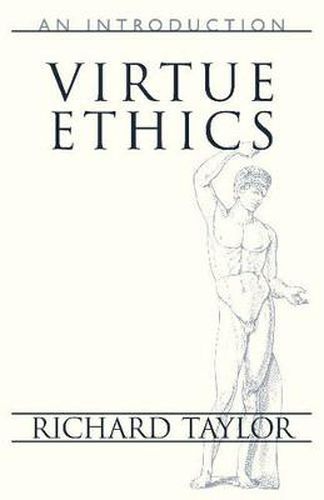Readings Newsletter
Become a Readings Member to make your shopping experience even easier.
Sign in or sign up for free!
You’re not far away from qualifying for FREE standard shipping within Australia
You’ve qualified for FREE standard shipping within Australia
The cart is loading…






In this fresh evaluation of Western ethics, noted philosopher Richard Taylor argues that philosophy must return to the classical notion of virtue as the basis of ethics. To ancient Greek and Roman philosophers, ethics was chiefly the study of how individuals attain personal excellence, or ‘virtue’, defined as intellectual sophistication, wisdom, strength of character, and creativity. With the ascendancy of the Judeo-Christian ethic, says Taylor, this emphasis on pride of personal worth was lost. Instead, philosophy became preoccupied with defining right and wrong in terms of a divine lawgiver, and the concept of virtue was debased to mean mere obedience to divine law. Even today, in the absence of religious belief, modern thinkers unwittingly continue this legacy by creating hair-splitting definitions of good and evil.
$9.00 standard shipping within Australia
FREE standard shipping within Australia for orders over $100.00
Express & International shipping calculated at checkout
In this fresh evaluation of Western ethics, noted philosopher Richard Taylor argues that philosophy must return to the classical notion of virtue as the basis of ethics. To ancient Greek and Roman philosophers, ethics was chiefly the study of how individuals attain personal excellence, or ‘virtue’, defined as intellectual sophistication, wisdom, strength of character, and creativity. With the ascendancy of the Judeo-Christian ethic, says Taylor, this emphasis on pride of personal worth was lost. Instead, philosophy became preoccupied with defining right and wrong in terms of a divine lawgiver, and the concept of virtue was debased to mean mere obedience to divine law. Even today, in the absence of religious belief, modern thinkers unwittingly continue this legacy by creating hair-splitting definitions of good and evil.